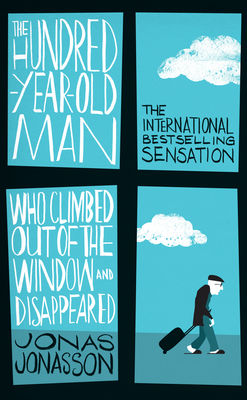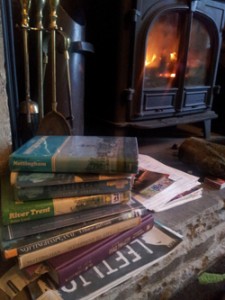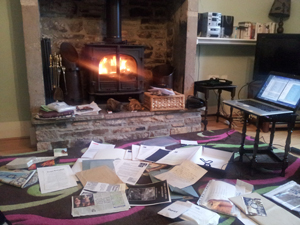 Allan Karlsson is a few minutes away from celebrating his hundredth birthday when he decides to climb out of the window of an old people’s home and do a runner, or rather a steady walk away. The attending press and Mayor are worried at his unforeseen absence but they needn’t be as this is a centenarian more than capable of looking after himself, as we discover over the next 392 pages.
Allan Karlsson is a few minutes away from celebrating his hundredth birthday when he decides to climb out of the window of an old people’s home and do a runner, or rather a steady walk away. The attending press and Mayor are worried at his unforeseen absence but they needn’t be as this is a centenarian more than capable of looking after himself, as we discover over the next 392 pages.
Karlsson makes his way to the nearest bus depot and buys a ticket for the next outbound journey out of the sleepy Swedish village. While waiting for the bus a ‘long-haired youth’ asks the harmless looking pensioner to mind his suitcase while he relieves himself. Karlsson agrees, but warns the impolite youth to hurry up as he has a bus he needs to catch. But the youth is in too much of a hurry to heed his words and so Karlsson catches his bus, along with the suitcase. Having left the retirement home in such a hurry he hopes the suitcase might include some useful items. It does in the form of 50 million crowns.
The novel follows Karlsson on an absurd and comical journey across his homeland where he collects an elephant, hot dog seller and a master thief on his way, while being chased by an incompetent and bemused police force and vengeful mafia. It’s like On the Road with Forrest Gump. The outrageous narrative is complimented by killer one-liners and wry observations that are perfectly weighted throughout, making this a wonderful page turner.
The chapters mix between the past and the present, so that we learn about Karlsson’s amazingly odd life as the novel progresses. Karlsson turns out to be an explosives expert who has wined and dined the most important political figures across the globe from Stalin to Mao Tse-tung. Yet he is completely unfazed by the influential company he keeps and decidedly uninterested in which side of the political spectrum they fall on. He has no time for politics or religion, not when there is food, vodka and a warm bed available.
Jonasson uses his centenarian to reinterpret some of the most significant events in history from Watergate to the splitting of the atom. Yet wherever Karlsson goes there is some kind of disaster and so he appears almost like an angel of death, yet he bears no malice to anyone. He is driven only by the desire to live a simple life which serves as a poignant contrast to the situations he finds himself in.
The book was Sweden’s bestseller in 2010 and has now been translated into English. It is due to be turned into a film directed by Felix Herngren. It’s a clever book but never smug, occasionally the events can get a little ridiculous but the tone is so devilishly dark that it sucks you right back in. There’s no moralising either yet it leaves you with plenty to think about. I certainly won’t be tutting at doddering old men fumbling for change at the checkout again.


